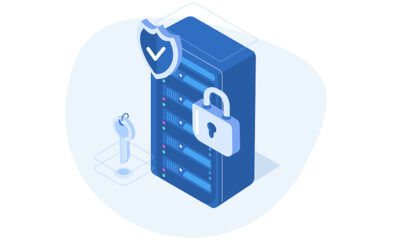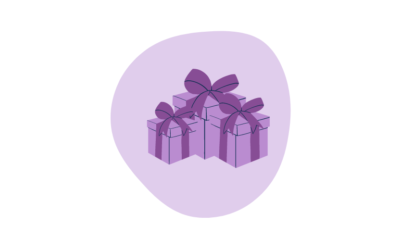Your online event was a huge success, but how can you secure the attention of your attendees on the remaining days of the year? How do you guarantee that today’s customers will still sign up for your events tomorrow? With 365-day events, you create a platform that keeps your customers active all year round and helps you build a strong digital community.
365-day event communities are in demand, and also Converve is already successfully implementing community platforms. What exactly is a 365-day event community and how do you benefit from it? In this article, we would like to provide an overview of the topic and show how Converve can help you implement your own 365-day event community.
What is a community?
The word community refers to a community of people who share a common goal or purpose, cultivate the same interests, or share the same values. We usually encounter the term community in connection with social networks. This is because the Internet in particular offers many platforms on which groups with common interests can find and exchange information, and from which permanent communities can develop.
A community can therefore be understood as a special kind of group that is characterized by a strong sense of belonging. Within a community, members can contribute and make a difference; they feel respected and needed. Unlike a traditional group, a community has a specific focus – a shared passion or need. In doing so, a community relies on strong relationships that sometimes take a long time to build and therefore tend to last a long time.
Too many event marketers fail to distinguish between a community, a traditional group, crowd or audience. Yet there are definitely differences here:
- A group is usually two or more people connected by a social relationship. Examples include friends, family, teammates, or music lovers.
- A crowd is specifically a large group of people, often gathered in an uncontrolled manner and generally for a short period of time. This can be a soccer match, a theater performance or a political protest.
- An audience is just as much a large group, but it tends to be more engaged and often stays for longer periods of time – media companies often talk about their target audience.
The event industry is great for building crowds with whom there is a transactional relationship over a period of, say, three days, but which remains completely untapped during the other 362 days of the year. To stop this valuable potential going untapped, a trend has developed away from the one-time event to the 365-day event community.
The approach: The timed event is now only the highlight of the overall experience. Events continue throughout the year on different channels by extending the themes as a combination of physical availability, content and digital communication and networking. Because digitalization offers us the chance to dissolve the boundaries of an event and simply be available to the event community 365 days a year.
Where did the shift from a one-way event to a 365-Day Event Community come from?
Face-to-face events will undoubtedly always remain a highlight and a special, emotional experience. Nevertheless, the main focus of event marketers is increasingly on virtual events, which have become the communication channel of choice since the pandemic if not earlier. This is because virtual events are crisis-proof and can adapt flexibly to current events because the conversion of formats and schedules is made much easier.
In addition, virtual and hybrid events provide valuable and already produced content for own podcasts, video channels, webinar series and much more. In this way, target groups can be reached much more frequently and intensively. That’s why more and more event marketers see great opportunities in relying on a 365-day event community instead of a short one-off event, in which content and products can be easily extended and made available to participants as an on-demand offer beyond the event and a year-round interaction can be cultivated.
365-Day Event Community: What are the benefits?
Physical and larger online events are a reliable tool for bringing people together and building relationships. To maintain and continuously strengthen these valuable connections and the developed trust in the brand throughout the year, 365-day event platforms are a good choice.
This is because the continuous cultivation of your regular audience results in many important competitive advantages for you. For example, the probability that an existing customer will register again for one of your events is significantly higher and involves less effort than that of a prospective customer becoming a new customer. Thanks to the strong trust in your brand, your satisfied and loyal community will recommend your events to others and thus generate new customers for you.
By building and maintaining a 365-day event community, you can also prevent your attendees from leaving sooner or later and turning to other events. That’s because you’re fostering attendee loyalty throughout the year and continuously keeping your customers engaged. With a 365-day approach, valuable network connections no longer fizzle out after the event, but remain on your platform. If your regular audience remains loyal, you also need less marketing budget to acquire new participants. This leaves you with more marketing budget that can go into cultivating subscriber loyalty. With strong attendee loyalty, you also make it harder for your competition to gain a foothold in the market.
With an always-on strategy, your content and products are always available to the community and you reach a larger and more engaged audience. In addition, thanks to digital tools, you can collect more data and insights about your subscribers and find out what they want and demand from your products and content. On this basis, you then have the opportunity to continually create new and individually tailored experiences for your users – similar to Netflix, Amazon or Spotify.
Another benefit of a 365-day event community is that your revenue is no longer solely dependent on physical events or major online events. You have the opportunity to offer your exhibitors a year-round presence in your marketplace and also generate additional revenue through sponsorships, such as content, articles, and webinars, as well as through advertising or mobile notifications. Moreover, the larger the share of your digital revenues, the more crisis-proof you are positioned.
The advantages of 365-day events at a glance
- Promoting participant retention and loyalty
- Building trust in the brand
- Recommending the events to others: Participant growth
- Leveraging on-demand offerings
- More data and insights about attendees
- Revenue growth
- Sustainability (no travel for participants, etc.)
- Crisis-proof and flexible
- Promotion of competitiveness
Year-round interaction: How to create touch points with your community
The advantages of a 365-day event community are obvious. But how do you now extend your own event from one or a few days to a whole year and how do you successfully build a year-round community alongside your event portfolio? Well, when switching from an event to a community model, you should first look at what you already have as a foundation:
- Email database
- Existing social media channels
- Exhibitor base
- Webinars & workshops
A 365-day strategy can be gradually developed on the existing infrastructure.
But keep in mind: 365-day events aren’t just based on technology; there needs to be a value proposition that your attendees can identify with, which ultimately turns a broad collection of individuals into a truly definable community.
How does your product meet the needs of your target audience?
With the help of surveys within your existing database, you can find out, for example, how you offer your community added value and which product features are particularly important to your community. These can include prices and offers, technical innovations, customer support, product information or testimonials. The results can then be used to tailor your 365-day event to your customers’ wants and needs. Which ultimately allows event participants to be brought together to form a community.
For example, ask your database which companies you think are the most interesting and influential in the industry? Then invite speakers from these companies to your online events and integrate them into your community as testimonials.
But you won’t get far with just upfront research. By testing different types of content and messages, you can find out and learn more about your community every day. Also, continuously listen and track what is and isn’t resonating well with your community right now. Develop content that targets just that and then play it back out to the community.
How to maintain your 365-day event community
To cultivate a vibrant 365-day event community, you need good content, strong networking opportunities, and an active marketplace.
The content
Content is the lifeblood of your community. It’s where you can bring your value proposition to life every day with new, useful content for your users. It’s the content that keeps your social media channels attractive, that gets your email newsletters opened, and that attracts new audiences via search engines. In today’s world, the market is flooded with content, so it’s even more important to listen closely to your target audience to provide content that adds real value to your community. There are many ways to deliver your content through a variety of formats:
- Social Media Channels
- Newsletter
- Podcast, vlog or blog
- Checklists
- E-Books & Guides
- Cost calculator tool
- Infographics
- Trend Reports & Whitepapers
- Studies & Surveys
- Contests & Quizzes
- Influencer Cooperations & Brand Ambassadors
- Webinars / Workshops / Livestreams
- Product videos / how-to videos, etc.
- Community Forums
- Testimonials
- News reports from the industry
- Interviews with industry representatives
If you want to build a successful 365-day event community, you should nurture your community and regularly provide it with high-quality content. Here, journalistic skills, the willingness to experiment with different multimedia formats, and the insight to trust the results of analysis are essential. But the best content is of no use to you if no one knows about it. You should therefore promote your content, for example, through:
- SEO-oriented articles
- via social media
- Assign hashtags
- Send out how-to post
- conduct weekly chats
- Or spread the word through email marketing.
Create networking opportunities
Another important role in building a community is to create quality connections among participants. After all, as an event marketer, you should see yourself not only as an organizer, but also as a facilitator between people within the community. One of your goals is to create a year-round networking experience, just as audiences do when they attend a one-time event. However, it is not enough to simply provide the technology that allows people to network, certain methods are also needed to create networking opportunities.
Examples of networking tools:
- Use community groups to foster discussions on niche topics.
- Hold online meetings of micro-communities categorized by topic or geography.
- Set up meet and greet areas with speakers.
- Arrange concierge service to encourage a meeting between buyers and sellers (hosted buying)
When networking your community, be sure to use the data you have collected to understand what their community needs and use matchmaking to bring together the exact people who can benefit from each other.
Create a marketplace
A marketplace is an essential building block for creating an omnichannel experience. Because purchases and sales don’t wait for the one event. To enable year-round business relationships, you should therefore have a marketplace in your portfolio that allows your community to combine in-person and digital transactions at any time. This way, buyers can seamlessly switch between digital and in-person experiences, just as they please.
But one more thing: You can provide a platform for your community, you can support your community, and you can facilitate the exchange among each other, but the golden rule is: You can’t own or control your community. Because successful communities lead their own lives.
How can you provide your community with content throughout the year?
To give you a rough idea of how a 365-day event community can work, take a look at the animation below.
The two major events, here at the beginning and end of the year, take place at regular intervals on the event platform and represent special highlights within your community. Throughout the year, smaller event formats are offered, for example in the form of webinars, livestreams or workshops, which encourage the community to visit the platform again and again and to exchange ideas with other participants. The possibility of networking within the community is unlocked throughout the year, in the animation this area is represented by the purple area. The large light blue bubble encompasses the big picture and represents the entire 365-day event community.
Build your 365-day event community with Converve
Once the strategy for your 365-day event community is in place, the next step is to find the right technology for implementation that meets all your requirements. As one of Germany’s leading providers of event software for B2B matchmaking and networking, we at Converve can work with you to realize all of your event planning tasks. That’s because we already implement 365-day event platforms and have the right tools and methods you need to build an active community.
Community platforms will play a significant role in the future because they can be of great importance in customer retention. Even in times of crisis, you can generate reach and acceptance for your brand.
Learn how to use Converve as a customized solution for your events & community in a short demo.



